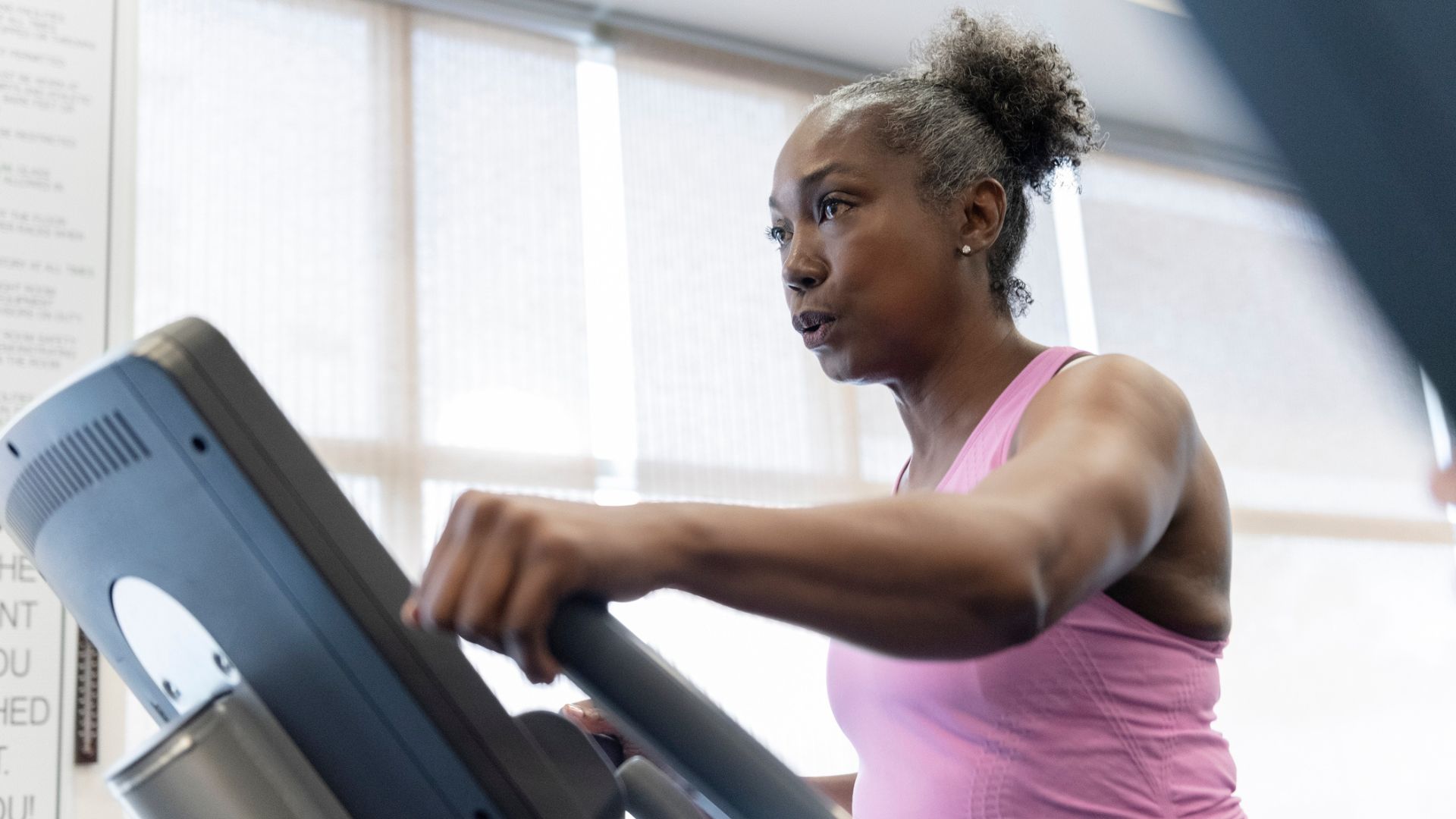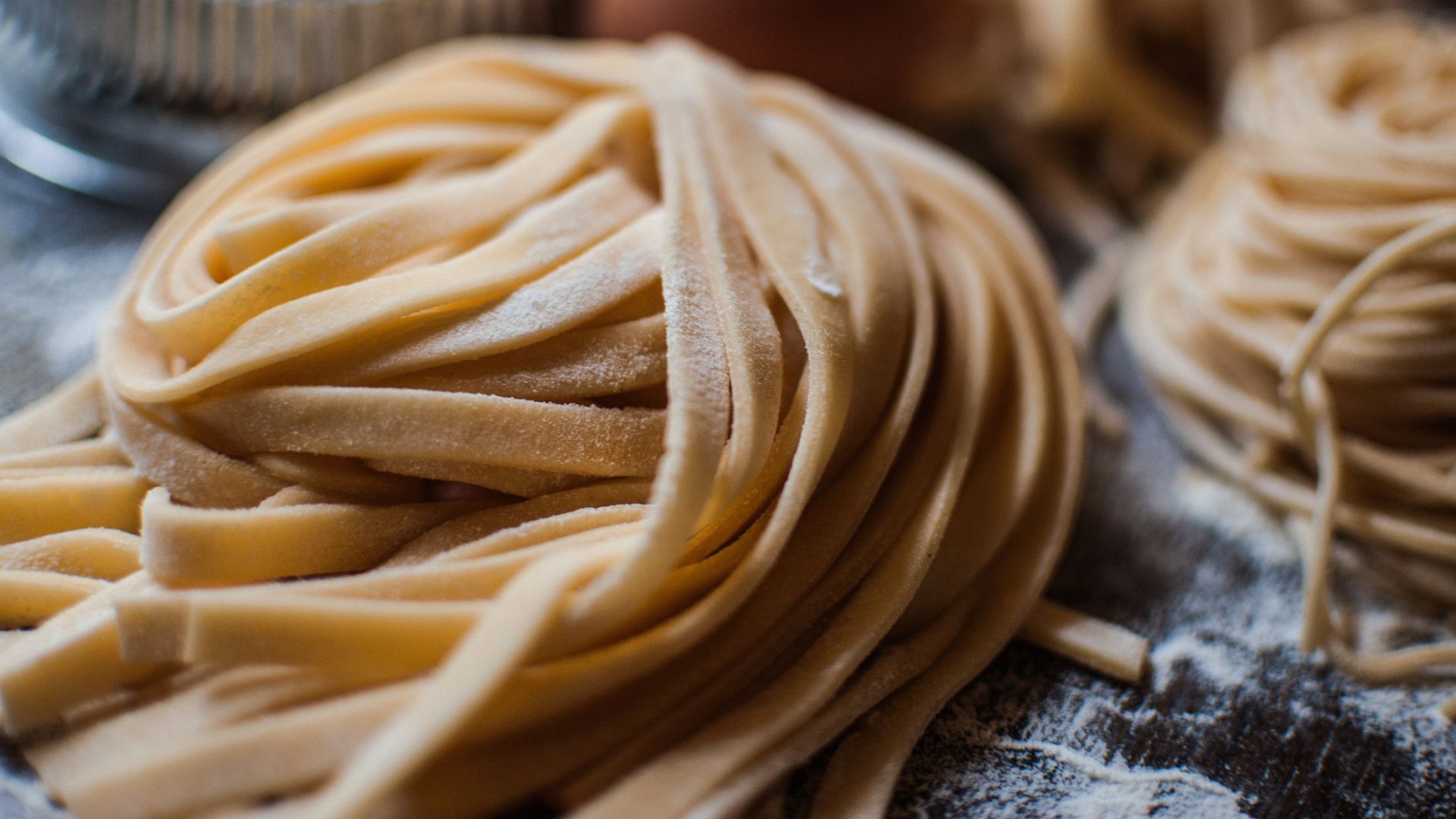Dieting but not losing weight? Experts explain how to get back on track
Three nutritionists explain why you could be dieting but not losing weight


There’s nothing more frustrating than dieting but not losing weight or meeting your health goals. No diet should be so restrictive as to interfere with your day-to-day life, but when you make compromises on your eating and other lifestyle habits, you expect to see results.
Unfortunately, just following a diet or weight loss plan doesn't automatically mean that you're losing fat; you also have to be in a calorie deficit. This is where you consume fewer calories than you burn every day and is also referred to as an energy deficit. It's stage one when it comes to weight loss and nothing happens without it.
But even if you're in a calorie deficit to lose weight, it's normal to not see results after a while. This is what two nutritionists have to say about dieting but not losing weight and how to switch the scales in your favor.
Why am I dieting but not losing weight?
There are many factors to consider but if you're dieting but not losing weight then you're unlikely to be in a calorie deficit. Several studies, including one by the Medical University of Vienna and Pennington Biomedical Research Center, have proven that there are many different ways to go about fat loss but it just can't happen without this deficit.
"Any deficit in energy will result in weight loss," Arj Thiruchelvam, a nutritionist, running and performance coach, and sports science educator, explains. "But is scientifically impossible to lose weight without creating this calorie deficit."
"A common misconception is that specific diets, like the ketogenic diet or the paleo diet, cause weight loss," says Thiruchelvam. "But it’s actually about the number of calories consumed and burnt rather than the specific diet. Many of us have heard the story about the man who lost weight only by eating at McDonald's. It’s possible, but far from ideal for eating behaviors and health markers.”
So, what could be causing you to struggle with not losing weight in a calorie deficit? From not drinking enough water to eating too much of one food in particular, here's why you could be dieting but not losing weight.
Sign up to our free daily email for the latest royal and entertainment news, interesting opinion, expert advice on styling and beauty trends, and no-nonsense guides to the health and wellness questions you want answered.

1. Your deficit isn't correct
Have you worked out how many calories you need to maintain the same weight you are now and then created your deficit using an online calculator? If not, then that’s the best way forward to find out how many calories you should eat every day.
“If not, you’ll struggle to lose weight,” Thiruchelvam says. “A slow metabolism is very rare and isn’t therefore usually the cause. You can have your thyroid checked and, if necessary, medicated by your doctor to rule this out as well though.”
2. You're not keeping track of how many calories you're really eating
"Having a clear idea of just how much you are eating and drinking will help you know whether weight loss is possible," he says. "Forgetting what you've eaten is a problem when looking at controlling your weight. This refers to forgetting drinks, alcohol consumption, cooking oils, and sauces, which all add up.”
Studies show that using a calorie counter app is beneficial to help keep track of how much you're eating, with research from the University of Pittsburgh showing that those who use food diaries consistently tend to lose weight more than people who don't.
These kinds of apps won't be necessary or suitable for everyone though, so it's important to find a method that works best for you. In some cases, Thiruchelvam warns, using an app like this can actually work against you. “It’s even a big no-no in the long term as it can lead to disordered eating,” he says.
3. You're overeating at the weekends
When Friday hits, it's normal to want to let your hair down a bit and enjoy a few drinks or a meal out. However, it's still important to keep track of your calories when the weekend comes. “The most common error we see are people who do really well Monday to Friday then binge at the weekend,” Thiruchelvam says. “This results in a calorie surplus and therefore they are dieting but not losing weight."
To combat the issue, he suggests counting calories by the week rather than the day. "Have higher and lower days that allow you to socialize, eat, and drink things you enjoy on the weekend but without bingeing.”

4. You're not doing enough exercise
When it comes to getting into and maintaining a calorie deficit, exercise is essential. You can achieve a solid deficit through nutrition alone, but it will likely leave you feeling hungry and unsatisfied so, as research from the University of Washington School of Medicine suggests, this deficit is best and most easily achieved through a combination of both.
Some people might choose to take on exercise programs like running for weight loss, they might go on huge hikes, or they might take up a gym membership, but exercise doesn't have to be a huge endeavor. LISS cardio, for instance, is something that many people do everyday and it's one of the best exercises for weight loss.
Exercising can also be as simple as switching up your routine throughout the day, says nutritionist Thiruchelvam, who is also the founder of Performance Physique. "Move as much as you can even when you’re not exercising, this can make all the difference," he says. "Make mindful choices where possible, like walking or cycling instead of driving, and get up from your desk regularly to do some steps and stretches."
Also, you'll likely only be able to maintain a small deficit with diet alone. "The smaller the deficit, the longer it takes to lose body weight. Most moderate diets look at roughly 500 kcal deficits per day, but this is just a generic figure," he adds.
5. You're not doing enough strength training
Some exercise, however, has significant benefits over others if you're dieting but not losing weight. Not only is strength training, which is also referred to as resistance training, a great calorie burner with less impact-force on the bones and joints than cardio exercise like running, it also helps to maintain muscle mass. This, another study by the University of Monash explains, is essential because during the weight loss process, it's often burned away along with the fat.
Lifting weights, HIIT treadmill workouts and other forms of strength training also have been proven to help prevent metabolic slowdown. This, research from the University of Alabama outlines, happens when your body reduces the number of calories it burns as it fights against weight loss. So weight training can help to keep losing weight over time, and keep you toned and muscular, two aesthetic body compositions that you may be looking for when you lose weight.
6. You're drinking too much alcohol
Tipping over the edge of your calorie deficit is easily done if you drink alcohol regularly, says nutritionist Gomez de Bonilla. “There are 7 calories per gram of alcohol," she says, pointing out as an example that there are 12 grams of alcohol in 1.5 ounce of alcohol, which makes a shot of vodka around 98 calories.
"Alcohol calories are also considered empty calories, which means they do not meet the relevant nutritional needs and are stored in our bodies as fat," she says.
It is possible to continue drinking if you want to lose weight, though. You just need to stick to that calorie deficit, which means opting for the lowest calorie alcohol where possible and staying away from boozy situations where you'll be tempted to drink more.

7. You may have an underlying health condition
There are some circumstances where you'll need to change your processes to avoid dieting but not losing weight. One of those is if you have an underlying health condition like polycystic ovarian syndrome (PCOS). “This is a very challenging situation to be in for many reasons and not just for weight loss,” Thiruchelvam says.
Those who have the condition, studies by Monash University have shown, experience fluctuations in their maintenance calories by as much as 20%. “That means the calories needed to lose weight are significantly less than for the normal population,” he explains. “For example, a 60kg woman may normally lose a substantial amount of weight by consuming 1300 calories per day, but a woman with PCOS might only lose weight on 1040 calories per day.”
In this case, it’s worth consulting a professional who can help you understand how to start your weight loss journey with a condition like this. “Those with PCOS should look at increasing their protein content per day as well, especially while aiming to lose body fat as one of the health benefits of protein is that it develops muscle mass, which helps burn calories,” he adds.
If you're worried about dieting and not losing weight, and you think you might have an underlying health condition, speak to your doctor.
8. You're not eating enough protein
Protein still contains calories, whether it comes in the form of meat and fish or one of the best protein powders, so it will contribute to your total calorie intake for the week. However, it's one of the most vital macronutrients for weight loss.
"Protein is an important macronutrient for many aspects of your life including muscle building, healthy skin, hair, nails, and proper immune function," Rachel Clarkson, Doctify-reviewed dietician and nutritionist, says. "It also contributes to satiety, which can help individuals to feel more satisfied with fewer calories and manage their weight."
Clarkson, who is also the founder of The DNA Dietitian, adds that good protein sources are what to snack on when dieting and some of the best include "Greek yogurt, but not Greek-style yogurt, and low fat babybel."
9. You're not sleeping well enough
A bad night's sleep isn't going to make or break it when it comes to weight loss, but it's worth learning how to sleep better if you're struggling with weight loss. "Sleep is a natural period of fasting," explains nutritionist Elisa Gomez de Bonilla. "It resets our metabolism and energy expenditure and while we sleep, appetite-suppressing neurons function as hormone sensors like leptin, which is involved in creating hunger cues ."
Studies by Stanford University looking at over 1000 people show that getting eight to 10 hours of quality sleep results in better leptin sensitivity, with participants having fewer cravings and a better balance of satiety.
Also when we're tired, our bodies are under more stress than usual thanks to a spike in cortisol hormone levels. "Leptin becomes much less effective because neurons cannot send their message," Gomez de Bonilla, who works with Oxford Online Pharmacy, explains. "This means our appetite naturally increases due to a lack of sleep, meaning we're more likely to want to eat."

10. You're eating too much sugar
As noted, a calorie deficit is essential for weight loss. However, there are some foods that are more likely to push you out of your deficit without you knowing, meaning you could easily be dieting but not losing weight. Sugar is one of the most common as foods with added sugar tend to be higher in calories than other snacks and they have a unique effect on the body.
"Naturally-occurring sugar is necessary for the healthy functioning of our bodies," says Gomez de Bonilla. "The body uses sugar and starches from carbohydrates to supply the brain with glucose and energy to the cells around the body. However, added sugar in goods such as chocolate and sweet drinks strains our natural feedback mechanism, which leads to increased insulin production."
"The excess insulin causes the cells in our body to absorb too much glucose and when too much glucose accumulates in the liver, it is stored as fat," she says.
11. You're not drinking enough water
Much like getting less than eight hours of sleep a night, not drinking enough water isn't going to make a major difference. But there is research to suggest that drinking water can increase your resting energy expenditure, which is the calories you burn outside of exercise. The study from Humboldt-University shows that within 10 minutes of drinking water, the number of calories we burn increases by up to 30% for at least one hour.
"Water is also a natural appetite suppressant, so drinking one to two hours before a meal reduces hunger and helps avoid snacking," Gomez de Bonilla says. "It removes unnecessary toxins as well by way of sweating and urination, and helps with constipation problems as well."
So how much should we drink? "Women and men up to 65 years old should drink 35ml per kg of body weight per day," she says.
12. You're not eating whole foods
When it comes to sticking to your calorie deficit, many people believe that you can basically eat what you want as long as you burn more calories than your total at the end of the day. But that's unreliable and, ultimately, you'll always fail to outrun a high-calorie diet. What you eat can be as important as how much you eat when it comes to your deficit, which is where sticking to a plant-based, whole food diet based on ancient grains comes in.
They'll keep you fuller for longer, a review by the University of Minnesota explains, reducing your urge to snack and consume more calories than needed, thanks to the increased levels of fiber, polyunsaturated fats, and vegan protein you'll have. As several other studies have shown, including one by Maastricht University Medical Center, these factors can be integral to a successful weight loss process.
Whole foods include:
- Fruit like apples, bananas, berries, tomatoes
- Seeds, especially chia seeds
- Vegetables, including broccoli, kale, sweet potatoes
- Whole grains like brown rice and pasta
- Fish, especially salmon
- Whole eggs
- Any kind of unprocessed meat
If you're looking to keep your energy levels up while you're dieting then whole foods are a great option as they're also one of the best foods to eat to stop you feeling run down, and can help in the maintenance of a healthy immune system.

13. You've been dieting for too long
When you're in a calorie deficit for too long, you hit what's known as a weight loss plateau. This is when your metabolism declines and you burn fewer calories than you did when you weighed more as you're essentially smaller, so need a lower number of calories to function on a daily basis, a study by Christian-Albrechts-Universität zu Kiel explains.
In this case, you may now (totally accidentally) be eating an equal number of calories as you burn, if not more. It's such a common reason behind dieting but not losing weight, extensive research by Nassau University Medical Center outlines, that many as 20% of those who lose weight quickly struggle to maintain their weight loss.
To get out of your plateau, you need to make a change and either increase your deficit by eating less, by exercising more, or ideally, a combination of the two. You can also try something called reverse dieting, which is where you increase your calorie intake to bring it back down to deficit levels weeks down the line, or switch your approach and try ways to lose weight without dieting.
What to do if you're in a calorie deficit but not losing weight
If you know that you're definitely in a calorie deficit but you're still not losing weight, then it's best to see a doctor. There are several other factors that could be impacting your ability to lose weight, such as certain prescribed medications and underlying health issues - including exercise burnout and other mental health issues.
"Seek professional support if you want to try aggressive dieting, significantly lowering your daily calorie intake and reducing sensations of hunger in the long term by lowering your 'normal' weight," says Thiruchelvam.

Grace Walsh is woman&home's Health Channel Editor, working across the areas of fitness, nutrition, sleep, mental health, relationships, and sex. She is also a qualified fitness instructor. In 2025, she will be taking on her third marathon in Brighton, completing her first ultra marathon, and qualifying as a certified personal trainer and nutrition coach.
A digital journalist with over seven years experience as a writer and editor for UK publications, Grace has covered (almost) everything in the world of health and wellbeing with bylines in Cosmopolitan, Red, The i Paper, GoodtoKnow, and more.